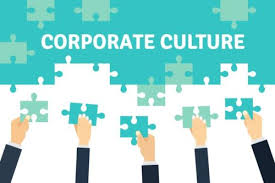The Danger of a Hyper-Focused Sales Culture

We all know that economic incentives are critical to promoting performance. Going back to the days of Adam Smith, the U.S. economic growth is the result of a basic motivation – hard work can result in significant revenues/profits.
Companies create incentives for their employees as well – sales performance is linked to salary, bonuses and promotions. We have observed skewed sales incentives, such as the Wells Fargo extreme.
But there are other situations that are far less extreme where sales incentives combined with leadership obsession with sales targets can erode a company’s culture. By itself, there is nothing wrong with compensating sales staff based on commissions and giving them reasonable incentives.
The key to a proper balance of incentives and company culture, however, depends on senior and middle management’s message to its sales staff.

If the message from senior management is to achieve your sales target at whatever cost and to enforce these requirements by threatening discipline or termination for failing to make the target, the natural and probable consequence will be sales employee misconduct. When such pressure is put on sales staff, you can expect bad behaviors – circumventing accounting revenue recognition to meet sales targets; bribery/kickbacks to customers, false reporting and documentation, and many other creative ways to reach rigid sales requirements.
By contrast, if the sales requirements are structured with balance or with consideration of team performance, and then reinforced through appropriate support and care in messaging, companies can fine tune such a “holistic” approach to maximize performance.
One of the worst examples of revenue recognition abuses was Valeant Pharmaceutical’s use of side agreements and a close relationship with an alleged independent distributor that was used to channel stuff. You can bet that the sales staff’s culture was incentivized by a “earn sales at whatever cost” culture.
Recently, Under Armour reported an ongoing DOJ and SEC investigation focused on accounting irregularities. These alleged violations occurred in a male-dominated culture, alleged sexual misconduct, departure of several female sales executives, and increased competition. Sales staff were permitted to entertain customers by taking them to strip clubs and adult entertainment sites and the4n reimbursed for such expenses.

A healthy balance between achievement, sales incentives, and commitment to a positive culture is a basic requirement. When this balance is skewed in the direction of sales incentives, a company is likely to suffer real harm. The message has to be made clear by top management – “we are not interested in sales that result from behavior contrary to our code of conduct.” When a company’s code is reinforced in its messaging, sales staff, while aggressive, should be encouraged to maximize legitimate and proper sales without regard to obsessive enforcement of sales goals.
Companies have to make money and they have to do so in accordance with their culture, values and principles. Such performance builds trust with customers and reliability in terms of sales. Indeed, a positive sales culture reinforces the trust of the company in the marketplace.
















2 Responses
[…] What are the dangers of a hyper-focused sales culture? Mike Volkov explores in Corruption, Crime & Compliance. […]
[…] What are the dangers of a hyper-focused sales culture? Mike Volkov explores in Corruption, Crime & Compliance. […]